Arkansas Chemical 30 PDH Discount Package 3
UV Disinfection Systems for Drinking Water - Overview (C04-006)
An Introduction to Treatment of Closed Industrial Water Systems (H03-005)
UV Disinfection Options for Wastewater Treatment Plants (C08-006)
Cooling Water Problems and Solutions (M05-009)
An Introduction to Membrane Techniques for Water Desalination (H03-004)
An Introduction to Industrial Wastewater Collection and Treatment (C03-038)
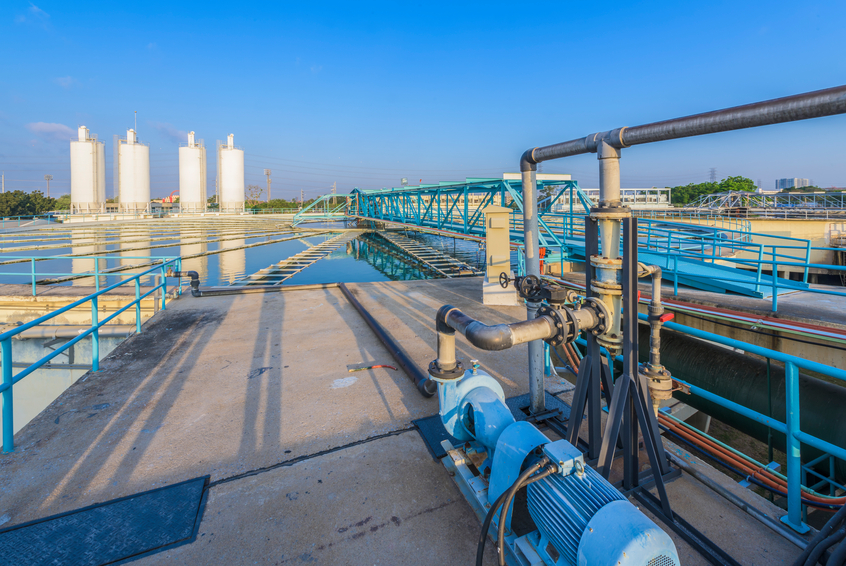
This online engineering PDH course provides planning and design principles to install UV disinfection at a public or private drinking water facility. This course is a companion course to the course titled, UV Disinfection for the Drinking Water Industry (Course No: C04-006). This course includes a description of the components of UV equipment and describes the design principles used to install these systems at new or existing water treatment plants. This material is based on recommended guidance from the EPA and is based on sound engineering principles and practices.
This 4 PDH online course is intended for wastewater treatment engineers and environmental professionals seeking to gain an understanding of UV disinfection technologies. The course will also be beneficial for a student with basic knowledge of water treatment design. It is also an excellent overview for those professionals involved in the planning and design of installing UV systems at water treatment plants.
This PE continuing education course is intended to provide you with the following specific knowledge and skills:
- How to design a UV disinfection system for drinking water teatment
- Regulatory guidance for complying with UV installations
- Components and installation requirements of various types of UV systems
- Support information for UV disinfection consideration
In this professional engineering CEU course, you need to review Chapter 3, "Planning Analysis for UV Facilities" and Chapter 4, "Design Considerations for UV Facilities" of the EPA Guidance Manual EPA 815-R-06-007, "UV Disinfection Guidance Manual for the Final Long Term 2 Enhanced Surface Water Treatment Rule, November 2006".
Upon successful completion of the quiz, print your Certificate of Completion instantly. (Note: if you are paying by check or money order, you will be able to print it after we receive your payment.) For your convenience, we will also email it to you. Please note that you can log in to your account at any time to access and print your Certificate of Completion.

This online engineering PDH course provides an overview and background of technical information on the application of ultraviolet light for the disinfection of drinking water by public water systems. This overview includes a description of basic chemical and physical principles, the components of UV equipment, and performance monitoring for UV facilities. The overview material intended to present generally accepted facts and research results related to UV disinfection. The material covers many aspects for consideration when implementing a UV disinfection system.
This 4 PDH online course is intended for wastewater treatment engineers and environmental professionals seeking to gain an understanding of UV disinfection technologies. The course will also be beneficial for a student with basic knowledge of water treatment design and is interested in learning about how UV disinfection is now being applied as a disinfection alternative for municipal water supply systems. It is also an excellent overview for those professionals working in the field of water treatment.
This PE continuing education course is intended to provide you with the following specific knowledge and skills:
- Learning the background on drinking water treatment
- Understanding UV disinfection properties and mechanisms
- Understanding the components and performance of various types of UV systems
- Learning the accepted facts and research results relating to UV disinfection
- Knowing the support information for UV disinfection consideration
In this professional engineering CEU course, you need to review Chapter 2, "Overview of UV Disinfection" of the EPA Guidance Manual EPA 815-R-06-007, "UV Disinfection Guidance Manual for the Final Long Term 2 Enhanced Surface Water Treatment Rule, November 2006".
Upon successful completion of the quiz, print your Certificate of Completion instantly. (Note: if you are paying by check or money order, you will be able to print it after we receive your payment.) For your convenience, we will also email it to you. Please note that you can log in to your account at any time to access and print your Certificate of Completion.
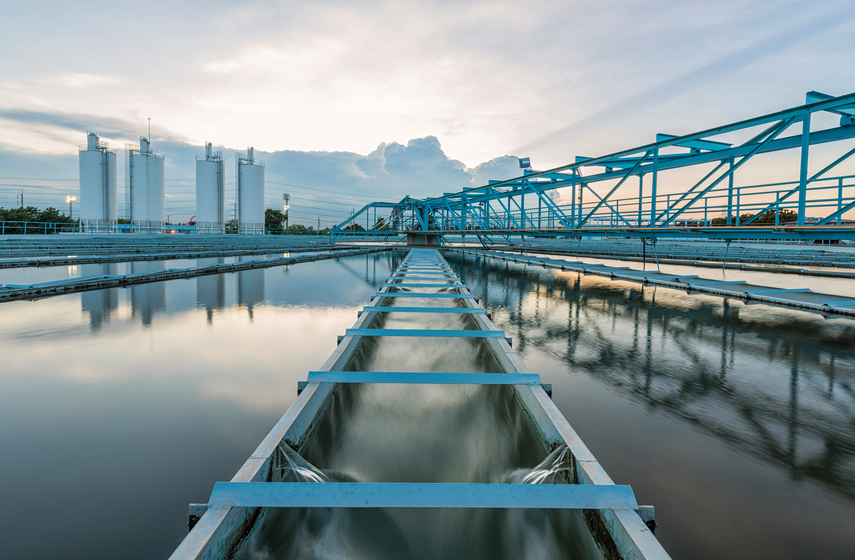
This online engineering PDH course presents best practices for treatment of closed industrial water systems used to provide heating, cooling, or both for buildings and industrial processes.
The term "closed water system" refers to a water system that is used to provide heating, cooling, or both for industrial processes or facilities. The system is sealed (closed), sometimes under pressure, and is not open to the atmosphere. No evaporation takes place and, with good operation, water is lost only minimally from the system.
In general, water treatment for closed systems is much easier than for open systems. Makeup water is needed only to replace seal leakage and other incidental leakage. Because of the small makeup water requirements of these systems, they require little chemical treatment, which can be added intermittently as needed. Once properly treated, the system water does not form scale and has little or no corrosion potential. Two main types of closed water systems are used at many installations: hot water closed heating systems and chilled water closed cooling systems.
This 3 PDH online course is intended for mechanical engineers and other design and construction professionals wanting an introduction to the technologies, equipment and operational practices for treatment of closed industrial water systems used to provide heating, cooling, or both for industrial processes or facilities.
This PE continuing education course is intended to provide you with the following specific knowledge and skills:
-
Learning about treatment of hot water systems
-
Learning about treatment of closed chilled water systems, brine systems, and glycol systems to supply cold or chilled water for cooling processes and air conditioning
-
Learning about treatment of diesel engine jacket cooling systems
-
Learning about water treatment programs for both closed hot water and closed chilled water systems to control corrosion and deposition of microbiological organisms
-
Learning about treatment of makeup water
-
Learning about corrosion control program options;
-
Learn how to implement sulfite-caustic, nitrite-azole, and polysilicate-azole treatment programs
In this professional engineering CEU course, you need to review the course document titled, "An Introduction to Treatment of Closed Industrial Water Systems".
Upon successful completion of the quiz, print your Certificate of Completion instantly. (Note: if you are paying by check or money order, you will be able to print it after we receive your payment.) For your convenience, we will also email it to you. Please note that you can log in to your account at any time to access and print your Certificate of Completion.

This online engineering PDH course will provide a detailed evaluation of ultra violet (UV) technology as an alternative to conventional chemical disinfection methods used at wastewater treatment plants (WWTP).
Chlorination has been the preferred disinfection method used for treating WWTP effluent, but concerns about chemical releases, public safety, and the potential for chlorinated effluent to be toxic to aquatic life have caused municipal managers to consider other options. Although chlorine, sometimes followed by dechlorination, continues to be used at many municipal WWTPs, use of other means, such as UV disinfection, is increasing. UV is a technology capable of providing effective WWTP effluent disinfection while reducing safety and environmental toxicity issues.
There are many factors that must be carefully considered to verify that UV facilities are safe, reliable and economical. These issues include the cost of power and lamp replacement, lamp fouling, ability of the water to allow transmission of UV radiation, tailing, photoreactivation and regrowth of disinfected microorganisms, and dose selection.
This 8 PDH online course is intended for wastewater treatment engineers and environmental professionals seeking to gain an understanding of UV disinfection technologies. This course is also an excellent overview for those environmental professionals working in the field of water and wastewater treatment. A complete description of UV science is described along with its application to the disinfection of wastewater. The three major UV technology options are fully presented and compared. Results of a pilot demonstration are looked at to give the reader a real world example for evaluating UV technologies as an option for disinfecting wastewater at an existing plant.
This PE continuing education course is intended to provide you with the following specific knowledge and skills:
- General requirements of the USEPA Clean Water Act
- UV science
- Current UV disinfection technologies used in wastewater treatment
- Variations of alternative lamps and UV equipment
- Design and dose requirements of UV systems
- O&M requirements and costs of UV systems
- Support information for determining UV disinfection options
In this professional engineering CEU course, you need to review the NYSERDA Publication, "Evaluation of Ultraviolet (UV) Radiation Disinfection Technologies for Wastewater Treatment Plant Effluent".
Upon successful completion of the quiz, print your Certificate of Completion instantly. (Note: if you are paying by check or money order, you will be able to print it after we receive your payment.) For your convenience, we will also email it to you. Please note that you can log in to your account at any time to access and print your Certificate of Completion.
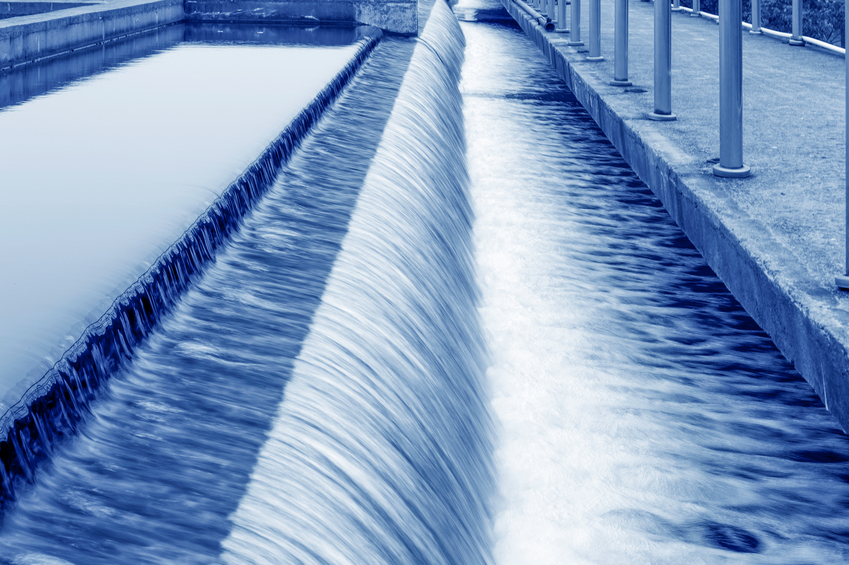
This online engineering PDH course presents an overview of common chemical treatment program that may be required to maintain cooling water systems in good operating condition. Reasons and means are discussed for controlling scale, deposition, corrosion, and biological fouling. The discussion also covers the information on chemicals used for control, and methods available to permit operation within the limits.
The three primary reasons that the cooling water treatment may be required are to control corrosion, scale formation, and the growth of biological agents. Any of these problems - or more usually a combination of them - can cause a loss of efficiency, shorten equipment life and push up operating costs. Imagine the large amounts of dollars lost when insufficient cooling suddenly curtails operations of process equipment.
This 5 PDH online course is applicable to all engineers and designers involved in power plants, oil and gas, chemical and petrochemical process facilities, refineries, industrial plants and HVAC systems in commercial buildings.
This PE continuing education course is intended to provide you with the following specific knowledge and skills:
- Understand the critical parameters such as conductivity, TDS, pH, alkalinity and saturation index applicable to cooling water treatment
- Understand the factors responsible for scale and corrosion
- Understand the types of scale and methods to minimize its formation
- Understand relationship between the cycles of concentration and blowdown
- Understand the physical methods of treating water such as softener, dealkalizer, ion-exchanger, filtration, and electronic de-scaling equipments
- Understand the corrosion types and the control techniques to mitigate corrosion
- Learn four types of corrosion inhibitors including, anodic, cathodic, mixed and adsorption types
- Understand the principles of cathodic protection
- Learn the possible types of biological fouling and the treatment methods including oxidizing and non-oxidizing biocides
- Understand the chemical feed equipment for closed and open cooling water systems
- Learn the five application methods for dosing chemicals including their benefits and limitations
- Learn the control sensors and monitoring devices used in cooling water treatment
In this professional engineering CEU course, you need to review the document titled "Cooling Water Problems and Solutions".
Upon successful completion of the quiz, print your Certificate of Completion instantly. (Note: if you are paying by check or money order, you will be able to print it after we receive your payment.) For your convenience, we will also email it to you. Please note that you can log in to your account at any time to access and print your Certificate of Completion.
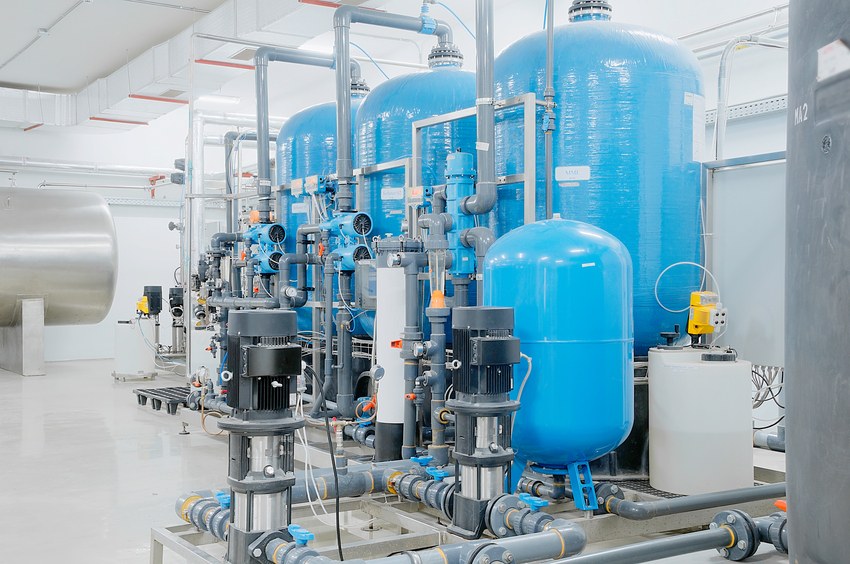
This online engineering PDH course will introduce you to techniques for water desalination using membrane technology. You will learn about the theory of electrodialysis, electrodialysis stacks, electrodialysis reversal, and reverse osmosis. It will discuss the advantages and disadvantages of system configurations and membrane materials. You will learn about the materials and equipment employed in typical membrane water desalination plants.
Water desalination systems may employ different technologies depending on a variety of technical and economic factors. One of the most important systems relies on membrane technology.
This 3 PDH online course course is intended for civil engineers, environmental engineers, mechanical engineers, electrical engineers and other design and construction professionals wanting an introduction to membrane techniques for water desalination. After completion of this course you will be prepared for advanced learning about membrane systems for water desalination, which in turn will prepare you for desalination project planning and design.
This PE continuing education online is intended to provide you with the following specific knowledge and skills:
- Learning the theory behind electrodialysis
- Learning about electrodialysis stacks and the importance of electrodialysis reversal
- Learn about osmotic pressure and the reverse osmosis technology
- Understanding the importance of energy recovery in membrane systems
- Learning about spiral-wound membranes and how they are employed in water desalination
- Understnding the advantages and disadvantages of membrane materials
In this professional engineering CEU course, you need to review the course document titled, "An Introduction to Membrane Techniques for Water Desalination".
Upon successful completion of the quiz, print your Certificate of Completion instantly. (Note: if you are paying by check or money order, you will be able to print it after we receive your payment.) For your convenience, we will also email it to you. Please note that you can log in to your account at any time to access and print your Certificate of Completion.
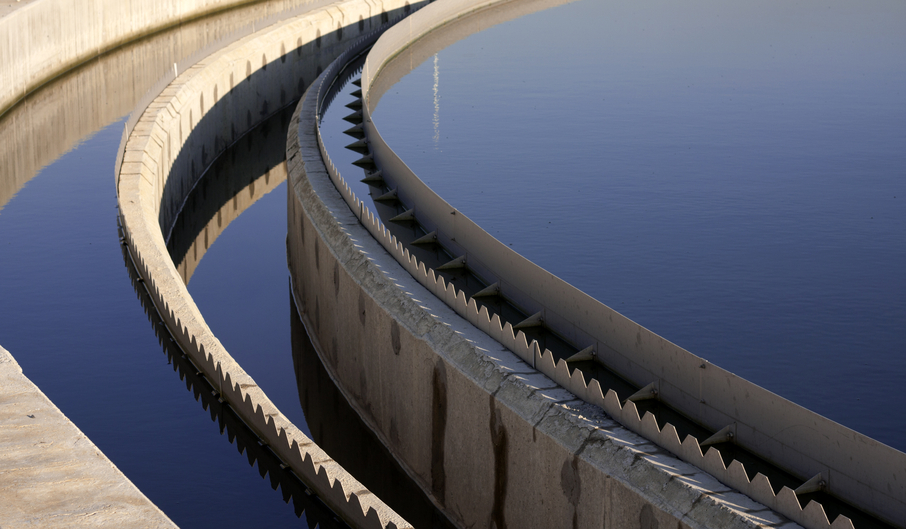
This online engineering PDH course provides an introduction to the technology, systems and design practices for industrial wastewater collection and treatment. Industrial waste should be collected in a manner that avoids unsafe conditions to personnel, equipment and facilities. Industrial wastes should either be pretreated sufficiently to be accommodated in a domestic wastewater collection and treatment system, or provided with a separate collection and treatment system.
Bench scale or pilot plant treatability studies to evaluate the effectiveness of the proposed physical, chemical or biological unit processes may be needed for the design of industrial waste treatment facilities. These studies should be conducted on the waste stream, if available, or on an equivalent waste stream at another facility. As a minimum, jar tests should be conducted prior to chemical process design to determine the reactor design criteria, process control and operating strategy, sludge production, and sludge characteristics.
Using new membrane technologies, consideration must be made for brine generation that can be nonhazardous and discharged directly to a publicly owned treatment works (POTW). Pilot and bench scale studies should simulate the complete series of proposed unit process treatment steps using the same wastewater sample. This will identify any adverse effects of upstream treatment processes on subsequent treatment steps.
This 3 PDH online course is intended for civil and environmental engineers and other design and construction professionals seeking an introduction to the principles of collection and treatment of industrial wastewater.
This PE continuing education course is intended to provide you with the following specific knowledge and skills:
- Understanding the characteristics of conventional and toxic pollutants
- Learning about effluent discharge limits
- Learning about pretreatment regulations
- Learning about isolation and collection systems for chrome and phenol containing wastewaters, for cyanide containing wastewaters, and for mixed acid and alkaline-content wastewaters
- Knowing the approaches to flow and load equalization
- Understanding the principles of equalization basin design and construction
- Learning about limits on biological treatment processes
- Understanding the basics of bioassay procedures
- Knowing the fundamentals of gravity and pressure collection systems for industrial wastewater
In this professional engineering CEU course, you need to review the course document titled, "An Introduction to Industrial Wastewater Collection and Treatment".
Upon successful completion of the quiz, print your Certificate of Completion instantly. (Note: if you are paying by check or money order, you will be able to print it after we receive your payment.) For your convenience, we will also email it to you. Please note that you can log in to your account at any time to access and print your Certificate of Completion.